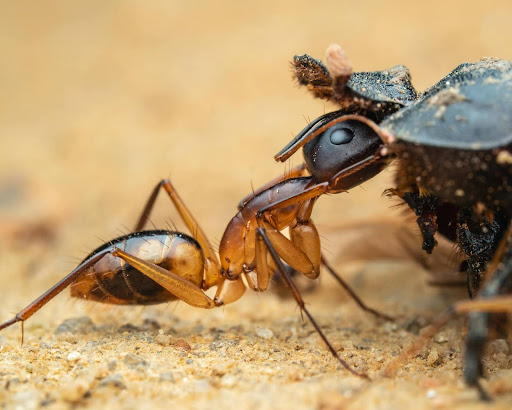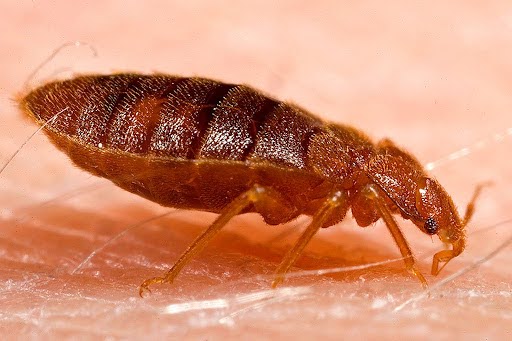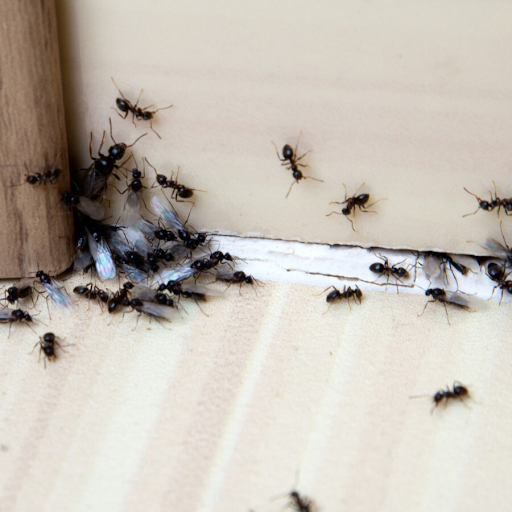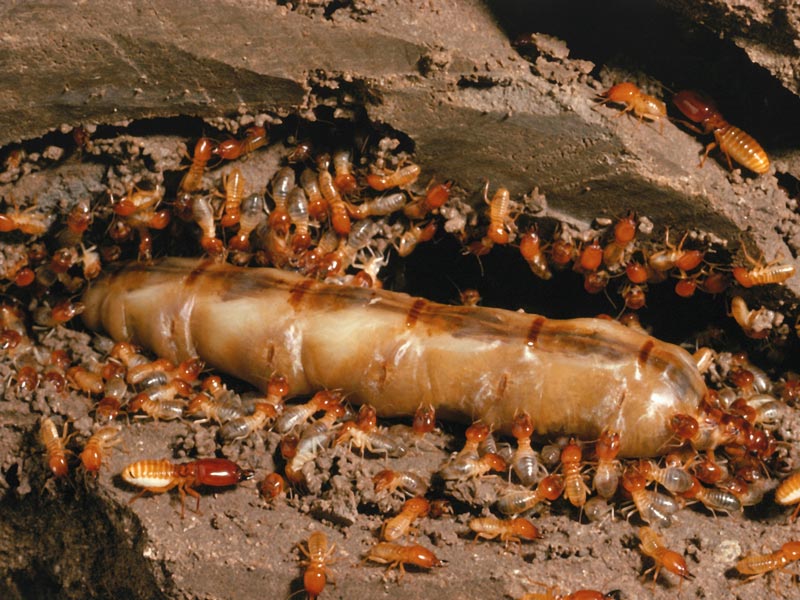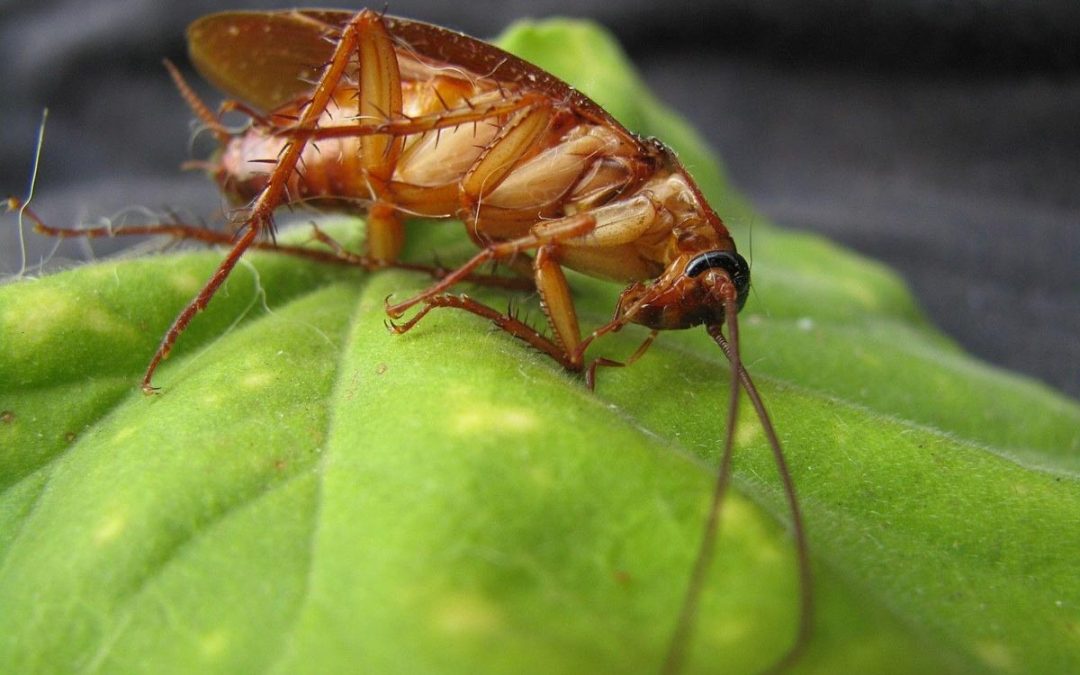
Why do cockroaches suddenly appear? (And what you can do about it?
If there’s food, moisture and warmth, you’ve got the perfect recipe for a cockroach outbreak! But why do cockroaches suddenly appear in homes that seem clean and sealed? The answer lies in their habits and survival instincts.
Find out why cockroaches suddenly appear and how you can stop these sneaky pests from venturing inside your home in today’s Hivemind blog.
What questions will this article answer?
Why do cockroaches suddenly appear in my house out of nowhere?
Being small, flat shaped and fast, cockroaches can breed quickly in certain conditions, making outbreaks happen fast.
Because they’re hungry
Cockroaches scavenge a wide variety of food inside and outside your home.
They’re small and sneaky
Most species grow up to half an inch in size, making cockroaches very light and agile.
Your house is warm
Cockroaches thrive in temperatures between 20-30 degrees Celsius, making your home an appealing nesting place.
There’s plenty of moisture around
To avoid drying out, cockroaches require constant hydration and prefer living near water sources.
How to keep cockroaches away
Clean your home regularly, seal off entry points, keep food stored away, secure your rubbish and compost and fix leaking plumbing.
Professional cockroach control
We use a combination of residual sprays, bait stations, control dust, fumigation and heat treatment.
For effective and reliable cockroach management, choose Allstate
We’re available 24/7 to all suburbs of Adelaide for urgent advice and tailored solutions for all cockroach outbreaks in homes and businesses.
Why do cockroaches suddenly appear in my house out of nowhere?
Many people wonder why cockroaches suddenly appear despite keeping a tidy home, but when conditions are right, they can move in quickly. Although they are nocturnal creatures, if you’re spotting cockroaches scurrying around during the day, this means that there are plenty of them hidden away out of sight!
With their small size, flattened shape and fast legs, cockroaches can seem to appear and disappear just as quickly.
Once inside your home, they’ll find a dark, enclosed and warm place to hide out of sight, usually right near a water source. Check under your sink, fridge, washing machine or dishwasher, tucked into drawers and cupboards, or even under furniture – places that you never would have thought to look!
Once they find a suitable nesting spot, they’ll start breeding and laying eggs, and after a few short months, you could find yourself caught in the midst of a full-blown cockroach outbreak.
Because they’re hungry
Although they are considered to be omnivores, cockroaches are not fussy when it comes to scavenging food. While they will eat plants and other insects outside, a hungry roach will happily devour almost anything inside your home.
They enjoy meat and carbohydrate-rich sweet, sugary and starchy treats, but will also eat paper-based products such as stamps and cardboard boxes, as well as adhesives used for book binding and wallpaper. In fact, they might even tuck into your leather furniture, soap or even your toothpaste!
They’re small and sneaky
With six tiny legs, it’s a wonder that cockroaches can move as fast as they do – around 1.5m per second! It does help that they have a flattened, oval body shape to improve aerodynamics. Some species can even fly, making them even harder to catch.
Being small and lightweight makes many species of cockroaches quite agile. Most cockroaches grow to around half an inch long, but some species such as the American cockroach, can grow over 2 inches in size.
Protect your home from cockroaches, get expert advice today
 or
or
Your house is warm
This explains one of the most common reasons why cockroaches suddenly appear, especially in warm Adelaide homes. The ideal temperature for cockroaches to thrive is between 20-30 degrees Celsius, making their peak season occur between spring and summer. The warmer conditions will accelerate the reproductive cycle and development of cockroach eggs, causing a spike in the cockroach population.
However, in the cooler seasons, cockroaches will also be attracted by the heat and shelter inside your home and find a cozy spot to nest, with some species even entering a hibernation-like state.
There’s plenty of moisture around
Although they can go for long periods without food, cockroaches must have ample amounts of moisture to survive, or they risk dehydrating. That’s why they tend to thrive most in areas which are warm and humid. It speeds up their metabolism, development and breeding cycle. Without a source of moisture, it’s believed that cockroaches will only be able to survive for around one week.
So if you’re wondering why cockroaches suddenly appear in the house after rain or during humid days, moisture could be the culprit.
How to keep cockroaches away
If you’ve ever asked yourself why cockroaches suddenly appear in your house, prevention is key. You can make your home less appealing for cockroaches by taking the following simple steps:
Keep your home clean
A messy and cluttered space invites a whole range of pests inside, including cockroaches. We recommend regularly cleaning and disinfecting floors, kitchen appliances and surfaces, particularly in dining and food preparation areas. Decluttering can also reduce the number of hiding spots for cockroaches to nest and lay eggs.
Seal off potential access points inside
With the ability to crawl inside the smallest and tightest of spaces, you’ll want to carefully inspect your home for tiny holes or gaps that could allow for cockroaches to slip inside, and then cover or fill them with waterproof sealants.
Store food away
Cockroaches will enjoy feasting from food in your kitchen as much as you do, so you’ll want to make sure that you keep it stored away in sturdy containers, out of sight, either in the fridge or pantry. This includes pet food and water bowls.
Proper waste management
With unhygienic foraging habits, cockroaches are known to search through rubbish and waste looking for their next meal. You’ll want to make sure that you use sturdy plastic bags to store your rubbish, and check that your rubbish bins have tightly fitted lids. Avoid keeping piles of compost out in the open.
Fix leaking plumbing
Requiring moisture to survive, cockroaches are clever at seeking out sources of water. Check your plumbing system regularly for leaks and fix them as soon as you can. This includes drains, toilets, pipes, gutters and taps, as well as appliances such as washing machines and dishwashers, which connect to your plumbing system.
Cockroaches in your kitchen? Get fast advice today
 or
or
Professional cockroach control
At Allstate, we find that a tailored approach works best against cockroach outbreaks, particularly if preventative measures haven’t been successful. After identifying the species and locating the nest, we’ll often use a combination of the following treatments to target the problem:
Residual sprays
Containing insect growth regulator pesticides, aerosol sprays can be applied to larger infested areas as well as around the perimeter of your home to act as a protective barrier.
Bait stations
For areas with a large amount of cockroach traffic, we can install tamper-proof bait stations containing insecticide.
Control dust
To encourage sneaky cockroaches to venture out from hard-to-reach hiding places, we’ll sprinkle insecticide control dust, which can penetrate even the tiniest of gaps, cracks and crevices.
Fumigation
Effective for severe outbreaks, we can apply a concentrated insecticide gas to a sealed off cockroach hotspot. We’ll be sure to let you know when it’s safe to re-enter the space.
Heat treatment
As a more environmentally friendly and pesticide-free approach against severe cockroach infestations, applying a dry heat treatment to a sealed-off area is also effective for destroying cockroach eggs as well as sterilisation.
For effective and reliable cockroach management, choose Allstate
For most people, when cockroaches suddenly appear in the house, it can feel like a huge shock. Although this means that a cockroach nest is most likely nearby, you don’t need to panic. Allstate Pest Control is just a phone call away.
Since 1986, we’ve successfully combatted cockroach outbreaks in all suburbs of Adelaide. Whether you’re in a commercial, residential or industrial setting, our team of highly trained pest control technicians is available 24/7 with accurate advice and a range of innovative treatments to safeguard your home or business against even the most persistent cockroaches.
With competitive warranties and payment plans applicable to all our services, you can have long-lasting cockroach protection sooner rather than later.

